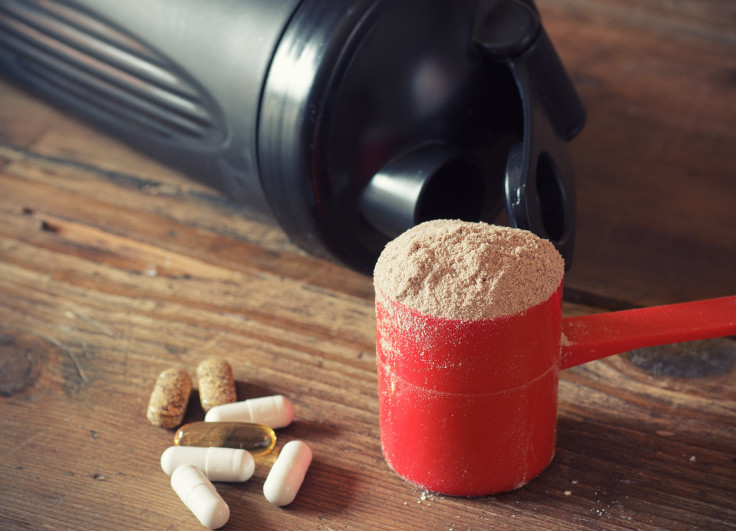Using Bodybuilding Supplements May Increase Risk Of Testicular Cancer

Testicular cancer rates have been increasing steadily in the United States and elsewhere for the past few decades, and scientists, for the most part, have had no idea why. But a new study from Yale University researchers may offer clues, as it found a link between testicular cancer incidence and the consumption of bodybuilding supplements.
The researchers, led by Tongzhang Zheng, found that men who reported using bodybuilding supplements with creatine or androstenedione had a higher chance of developing testicular cancer. “The observed relationship was strong,” Zheng said in a press release. “If you used at [an] earlier age, you had a higher risk. If you used them longer, you had a higher risk. If you used multiple types, you had a higher risk.”
Between 1975 and 2011, rates of testicular cancer rose from 3.7 to 5.9 cases for every 100,000 men. Maybe not so coincidentally, it was also around this time that bodybuilding started becoming popular among the mainstream — Arnold Schwarzenegger won the Mr. Olympia title in 1970 and every year after for five years. This growth in popularity was paralleled by growth in the bodybuilding supplement industry, which sold pills and powders meant to stimulate muscle growth.
Both creatine and androstenedione have been used by professional athletes to boost performance and increase strength. But while the science generally supports creatine’s benefits, it doesn’t for androstenedione, which increases testosterone production, and can cause a range of side effects from kidney damage and acne to mood swings and depression. For the most part, supplements containing these chemicals as well as others have gone largely unregulated, as the Food and Drug Administration relies on the manufacturers to ensure safety.
For the study, researchers looked at interview responses from almost 900 men, 356 of whom had testicular cancer. Participants were asked about their history of supplement use as well as a number of other factors that might contribute to cancer risk, such as smoking, drinking, exercise habits, family history, and any injuries sustained to the testes or groin. Bodybuilding supplement use was identified as using one or more supplements at least once a week for four consecutive weeks.
After adjusting for factors like age and race, they found men who used supplements had a 65 percent higher chance of developing testicular cancer than men who didn’t use them. Digging deeper, they found men who used more than one kind of supplement were at a 177 percent greater risk, while those who had used them for three years or longer were at a 156 greater risk, and those who began using them at 25 or younger were at a 121 greater risk.
“Considering the magnitude of the association and the observed dose-response trends, muscle-building supplement use may be an important and modifiable exposure that could have important scientific and clinical importance for preventing testicular germ cell cancer development if this association is confirmed by future studies,” the authors concluded.
With few known risk factors for testicular cancer, the American Cancer Society estimates 8,430 new cases of it will emerge in 2015. However, because it’s usually treated successfully, only 380 men are expected to die.
Source: Li N, Hauser R, Holford T, et al. Muscle-building supplement use and increased risk of testicular germ cell cancer in men from Connecticut and Massachusetts. British Journal of Cancer. 2015.



























